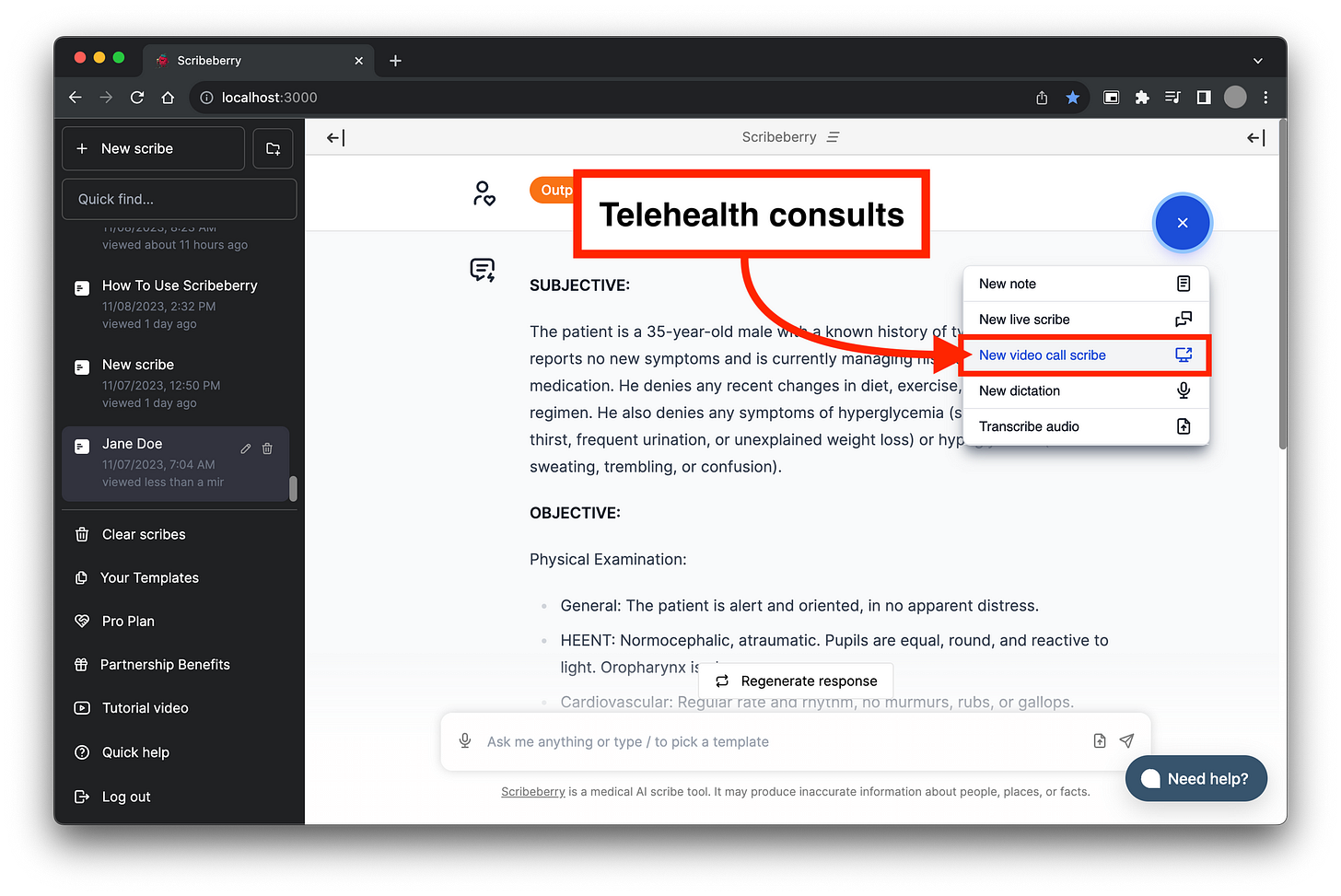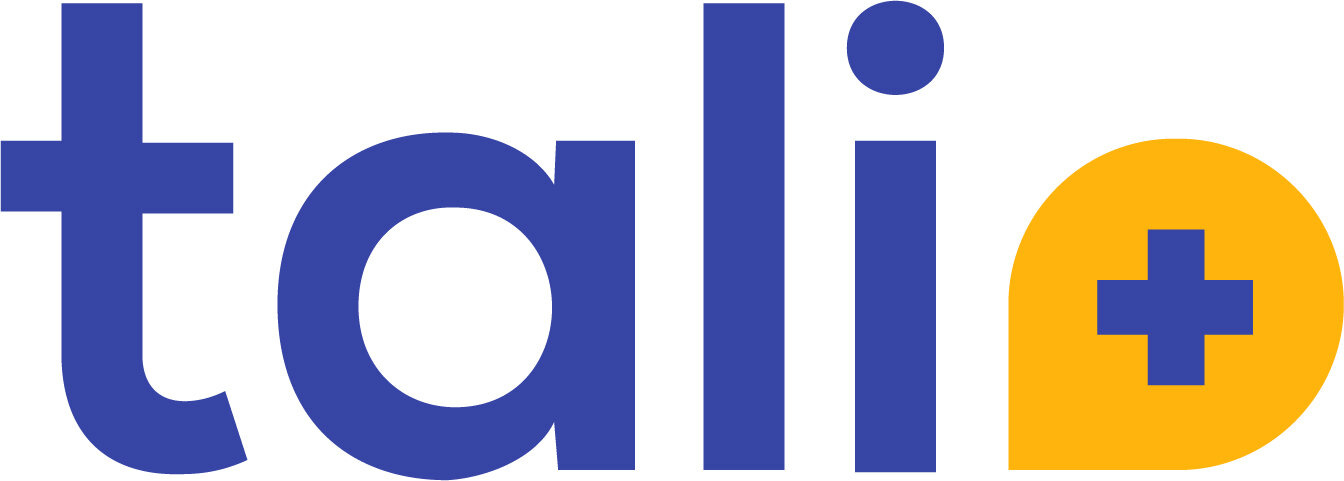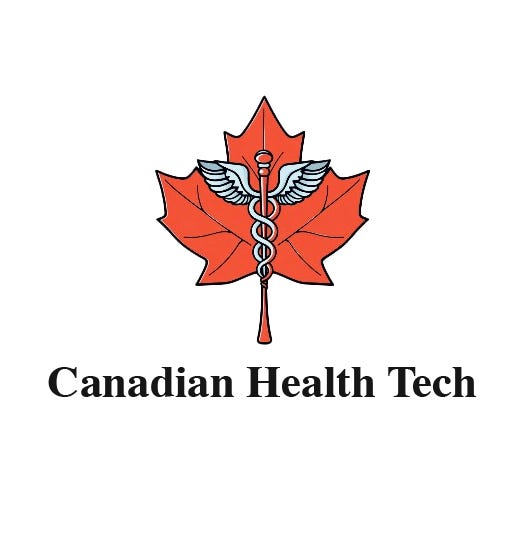Automating Care: How AI Scribes are Changing the Face of Canadian Healthcare
From Reducing Burnout to Improving Documentation, AI Scribes are Leading a New Era in Patient Care Efficiency
AI-powered medical scribe technology is gaining traction across the healthcare industry due to its potential to address critical challenges, including high documentation costs, physician burnout, and the need to enhance patient care quality.
OntarioMD led an evaluation study of AI scribe technology in collaboration with the eHealth Centre of Excellence and Women’s College Hospital Institute for Health System Solutions and Virtual Care. The study, funded by the Ontario Ministry of Health, involved 150 primary care providers and concluded in June 2024.
Participants reported spending 70% to 90% less time on paperwork, highlighting the potential of AI scribes to reduce administrative burdens in primary care settings.
The administrative load of charting and data entry often consumes valuable time that could be dedicated to direct patient care. By automating these tasks, AI scribes streamline workflows, reduce burnout, and improve the patient experience.
For healthcare systems, they offer an avenue to manage costs more effectively while upholding high standards of documentation accuracy and privacy.
Leading Canadian AI Scribe Companies
In Canada, the need for efficient, localized solutions has fueled a range of innovative AI scribe offerings that align with Canadian healthcare standards.
Local companies like QUAS, Scribeberry, Mikata Health, and Tali AI are at the forefront of this shift, providing solutions uniquely tailored to the needs of Canadian healthcare providers.
Canadian scribe AI companies play a pivotal role in ensuring that data privacy, system integration, and user experience meet the distinct requirements of Canada’s publicly funded healthcare system. As the sector grows, ongoing innovation within Canada will be essential to maintaining this momentum and meeting the specific needs of Canadian clinicians.
Scribeberry: AI-Powered Medical Documentation
Scribeberry, a Canadian-based AI medical scribe tool, offers healthcare providers an efficient solution for clinical documentation. By utilizing large medical language models and AI, Scribeberry transcribes voice inputs into accurate and detailed medical notes, including SOAP notes, consult letters, and forms. This automation aims to reduce the time clinicians spend on charting, allowing for more patient-focused care. Scribeberry is both HIPAA and PIPEDA compliant, ensuring data security and privacy. The platform was developed by Dr. Zaahir Moloo, a University of Alberta medicine graduate, who recognized the need for efficient documentation tools in healthcare.
QUAS: Canada’s Medical AI Scribe Solution
Based in British Columbia, QUAS offers an AI scribe that listens to patient-physician conversations and generates comprehensive medical charts. By automating documentation, QUAS aims to give healthcare professionals more time for patient interactions and reduce stress associated with administrative tasks
Mikata Health’s Mika AI Scribe
Calgary-based Mikata Health Inc. is developing the Mika AI Scribe to automate manual paperwork and data entry for clinicians. Supported by Alberta Innovates, this technology seeks to improve patient experiences and reduce physician burnout by streamlining administrative processes.
Tali AI: Enhancing Clinical Workflows
Tali AI participated in OntarioMD’s AI scribe pilot study, which involved 162 primary care providers. The study demonstrated that AI scribes could significantly reduce documentation time and administrative burdens, leading to improved patient interactions and provider well-being. Tali AI’s solution integrates seamlessly into clinical workflows, offering real-time transcription and data entry.
Empathia AI: Ambient AI Charting Assistant
Empathia AI offers an ambient charting assistant that transcribes clinician-patient encounters automatically. Designed to produce real-time, multilingual medical documentation, Empathia AI allows clinicians to prioritize patient care. It is available as a Chrome extension and an iOS app, providing flexibility and accessibility for healthcare providers.
Top U.S. Medical Scribe Companies Operating in Canada
As Canadian companies continue to innovate in AI scribe technology, several established U.S.-based providers are also expanding their reach into the Canadian market, offering both traditional and AI-powered solutions tailored to local healthcare needs.
• ScribeAmerica: As a leading provider of medical scribe services in the U.S., ScribeAmerica has extended its operations to Canada through ScribeCanada. They offer in-person and virtual scribe services, aiming to reduce physician burnout and improve documentation efficiency.
• Heidi Health: Heidi Health operates in both the U.S. and Canada, providing AI-assisted scribe tools that seamlessly integrate with EHR systems. Known for documentation accuracy, Heidi Health enhances clinical workflows and improves patient care.
• Athreon: Specializing in virtual medical scribe services, Athreon provides solutions to healthcare providers in both the U.S. and Canada. Their services focus on transforming the EHR experience with real-time transcription and data entry support.
• DigitScribe: Operating in both the U.S. and Canada, DigitScribe offers medical transcription services to hospitals, physicians, and clinics. With over 12 years of experience, they provide high-quality transcription services to meet healthcare needs.
Challenges for U.S. Companies Entering the Canadian Market
While U.S. companies are making headway in Canada, they face unique challenges in the Canadian healthcare landscape:
• Regulatory Compliance: Canada’s healthcare system operates under distinct regulations, including the Personal Information Protection and Electronic Documents Act (PIPEDA) and various provincial health privacy laws. U.S. companies must adapt their services to comply with these standards, which differ from U.S. regulations.
• Healthcare System Differences: Canada’s publicly funded healthcare system has a different structure than the U.S., affecting procurement processes, reimbursement structures, and technology adoption rates. U.S. companies need to navigate these differences to integrate their services effectively.
• Data Residency Requirements: Certain Canadian provinces mandate that health data be stored within Canada, necessitating U.S. companies to establish local data centers or partnerships to meet these requirements.
Summary of AI Scribe Solutions
Read Our First Article & Share Your Ideas
If you missed it, be sure to check out our first article here, where we covered key reasons why we started our Canadian Health Tech newsletter.
We’d also love to hear from you! What topics would you like us to explore next? Reply to this email or leave a comment with your suggestions – we’re always looking to provide valuable insights based on what matters to you.
We’ll continue to keep you informed about the latest developments and their impact on healthcare and tech in Canada. Stay tuned for more updates, and feel free to share your thoughts or questions with us!










